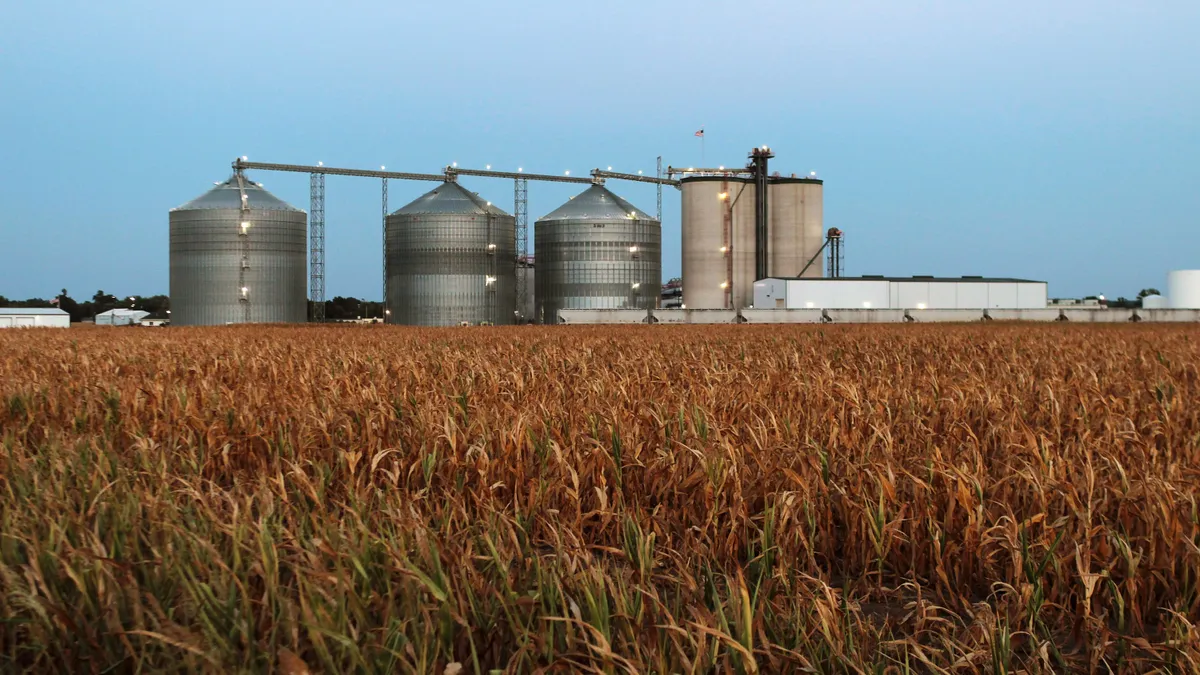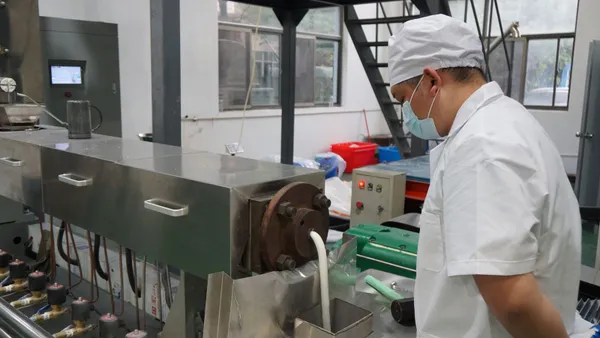Dive Brief:
- The U.S. Department of Agriculture is investing $180 million to expand biofuels and clean energy systems in an effort to create new market opportunities while addressing climate change.
- The latest round of funding will go to 586 projects across 42 states, Guam, Puerto Rico and the U.S. Virgin Islands. The grants aim to help business owners improve their operations’ energy efficiency and install or upgrade biofuels infrastructure, according to the USDA.
- The funding came from the Inflation Reduction Act and was made available through the USDA’s Rural Energy for America Program and Higher Blends Infrastructure Incentive Program.
Dive Insight:
The USDA is helping farmers lay the groundwork to make their agriculture equipment more energy efficient.
As part of the investment, the federal agency is allocating $120 million in REAP grants for 516 projects to help farmers and small businesses expand their use of wind, solar and other forms of clean energy.
Farms receiving grants plan to use the funding for a variety of projects: A Pennsylvania operation will purchase a more energy-efficient grain dryer, for example, while a South Dakota hog farm will install a solar array. The moves are expected to save thousands of dollars while decreasing energy consumption.
The USDA also is awarding $60 million in grants through HBIIP to business owners such as fuel distributors and gas station providers to expand access to domestic biofuels.
Several grant recipients have committed to installing more ethanol dispensers and storage tanks in an effort to increase the amount of biofuel sold per year.
“We are making long-lasting investments that will strengthen our energy independence, address the impacts of climate change and create new market opportunities and revenue streams for American producers while bringing good-paying jobs to rural communities,” USDA Secretary Tom Vilsack said in a statement.
Since the start of the Biden administration, the USDA has invested more than $3 billion for 11,221 projects through REAP and more than $323 million in 399 awards through HBIIP.
Questions remain on how President-elect Donald Trump will support the clean energy movement when he takes office Jan. 20. Before the election, Trump vowed to rescind any unspent IRA funds, calling the landmark climate bill too expensive.
Experts told Reuters that they are anticipating the clean energy transition to slow once Trump takes office but not to a full stop.
“The jobs and the economic benefits have been so heavy in red states, it’s hard to see an administration come in that says, ‘we don’t like this,’” Carl Fleming, a partner at law firm McDermott Will & Emery, said in an interview with Reuters.











